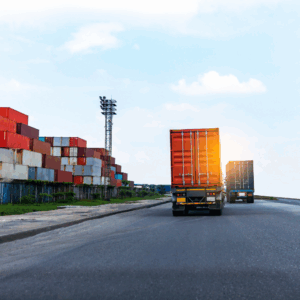
What is Digital Transformation in Logistics?
Digital transformation in transportation and logistics involves integrating digital technologies into all logistics operations. This includes freight transportation, inventory management, real-time tracking, quoting, and documentation. It’s more than just using software; it’s a shift in mindset that turns manual, error-prone systems into intelligent, automated workflows.
Logistics companies today utilize a combination of AI, machine learning, IoT, blockchain, cloud computing, and big data to enhance the efficiency of their supply chains. The result? Reduced costs, faster deliveries, improved customer experience, and greater resilience.
Key Technologies Driving the Change
- AI and Machine Learning
Artificial Intelligence (AI) helps optimize routes, predict demand, and automate decision-making. Machine learning models analyze patterns from vast datasets to adjust real-time operations. For instance, ExFreight utilizes AI to recommend the most optimal shipment methods and provide users with instant shipping rates.
- IoT and Telematics
Sensors and IoT devices are embedded in shipments to track their exact location, temperature, and condition in real-time. Real-time data enhances visibility and helps prevent delays. GPS and RFID enable accurate cargo tracking and monitoring across the logistics network.
- Cloud-Based Logistics Platforms
Cloud computing enables seamless data sharing among shippers, freight forwarders, and customers. ExFreight’s digital platform, for example, offers a comprehensive interface for obtaining freight quotes, booking shipments, and tracking international shipments with just a few clicks.
- Blockchain Technology
Blockchain ensures secure, transparent, and tamper-proof transaction records. Logistics uses it for digital contracts, customs documentation, and payment verification. It reduces fraud and simplifies dispute resolution.
Benefits of Digital Transformation in Supply Chain Management
- Increased Efficiency
Automating key processes, such as booking, quoting, and customs clearance, leads to faster cycle times and fewer errors. With ExFreight’s platform, customers receive online shipping rates instantly and can compare multiple shipping methods in one place.
- Better Decision-Making
Freight technology powered by data analytics provides actionable insights. Businesses can forecast demand, manage capacity, and respond quickly to market changes.
- Enhanced Customer Experience
Digital platforms provide shipment visibility, estimated delivery dates, and proactive notifications. ExFreight users receive real-time status updates and can track their shipments from start to finish.
- Scalability and Flexibility
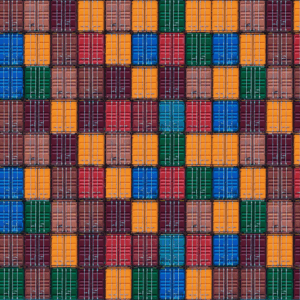
- Sustainability
By optimizing routes and consolidating loads, digital logistics reduces fuel consumption and emissions, supporting a greener supply chain strategy.
Common Challenges to Overcome
Despite its benefits, digital transformation in logistics and supply chain faces barriers:
- Legacy Systems: Integrating modern software with outdated infrastructure requires investment and planning.
- Workforce Readiness: Employees must be trained to use new digital tools.
- Change Resistance: Organizational culture can resist transformation; therefore, effective communication and leadership are crucial.
- Cybersecurity: As data moves online, protecting it from breaches is crucial.
ExFreight addresses these challenges with API connectivity, user training, and secure systems designed to simplify the shift to digital freight forwarding.
ExFreight: A Digital Freight Company Leading the Way
ExFreight is more than a logistics provider; it’s a digital freight company. Here’s how ExFreight stands out:
- Instant Freight Quotes: Compare real-time prices across air, ocean, and ground modes.
- Global Coverage: Ship to over 150 countries with door-to-door options.
- API Integration: Connect your TMS directly with ExFreight’s quoting and tracking systems.
- Smart Booking: Automatically select the most cost-effective and timely route for your shipment.
- Freight Shipping: Handle LTL, FTL, LCL, FCL, air, and ocean logistics from one platform.
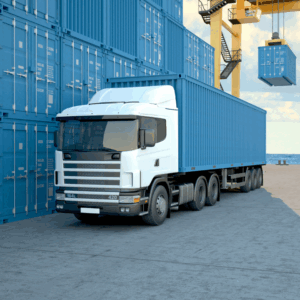
Frequently Asked Questions (FAQs)
What does “missing documents” mean?
This means essential shipping paperwork, such as commercial invoices or packing lists, was not submitted. Missing documents can delay customs clearance or prevent shipments from moving.
What does “late” mean in logistics?
According to the agreed-upon timeline, a shipment is considered late if it misses its scheduled pickup or delivery window.
What does “on time” mean?
An “on-time” shipment meets all its scheduled milestones, from pickup to final delivery, without any delays.
Where is the ETA date visible on the tracking screen?
The ETA (Estimated Arrival Time) is displayed on your tracking screen, usually in the shipment summary panel. It indicates when the cargo is expected to arrive at its destination.
Digital transformation in logistics and supply chain management is no longer optional; it’s essential. With the help of AI, IoT, blockchain, and cloud technologies, logistics companies can achieve unprecedented efficiency, transparency, and customer satisfaction.
ExFreight is at the forefront of this revolution, offering fast, reliable, and user-friendly digital freight solutions. From freight transportation to tracking, documentation, and quoting, ExFreight empowers businesses to streamline operations and scale globally.
Want to experience smarter shipping? Visit ExFreight today and get your freight quote in seconds. Your supply chain deserves a digital upgrade.


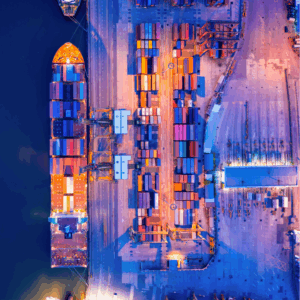

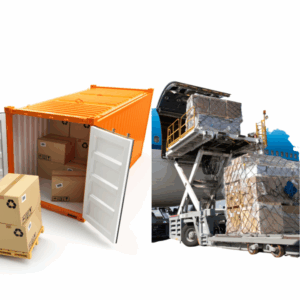
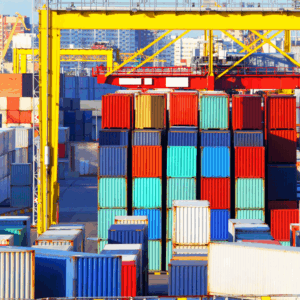

Leave A Comment
You must be logged in to post a comment.